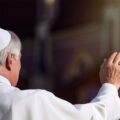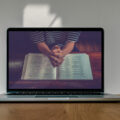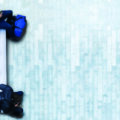Church and science over the years
Church and science over the years
The relationship between science and religion has never been easy and has been often contradictory. This article will explore the relationship between science and the Roman Catholic Church (RCC) throughout history. It will focus on Galileo’s affair, Evolutionary Theory, and AI technology.
This article was written in preparation for our Round Table on Artificial Intelligence
The complicated relationship of Church and science throughout the centuries
The relationship between science and religion has never been easy. This article will mostly explore the relationship between science and the Roman Catholic Church (RCC) throughout the years. The RCC has always had an ambivalent approach to science. On the one hand, the Church has been one of the main and most important supporters of science throughout the centuries. It has often supported science through financial donations or by founding schools, universities, and hospitals. In addition, many of the most remarkable scientists of the past have been clerical figures. Historian Pierre Duhem argues that Catholic mathematicians and philosophers such as John Buridan, Nicole Oresme, and Roger Bacon could be considered the pioneers of modern science.[1]
Officially, the RCC states that there is absolutely no contradiction between science and the Christian faith and between reason and faith. In the document Catechism of the Catholic Church published for the Catholic Church by Pope John Paul II in 1992, the following is stated:
“Though faith is above reason, there can never be any real discrepancy between faith and reason. Since the same God who reveals mysteries and infuses faith has bestowed the light of reason on the human mind, God cannot deny himself, nor can truth ever contradict truth. … Consequently, methodical research in all branches of knowledge provided it is carried out in a truly scientific manner and does not override moral laws, can never conflict with the faith, because the things of the world and the things of faith derive from the same God.”[2]
It is important to note that the statement that there are no contradictions between the RCC and science could bring different and even opposed approaches to the new discoveries of science. A possible reaction of the Church could be the attempt to harmonise scientific discoveries and religion – proposing for instance allegorical interpretations of the scriptures so that scientific discoveries will not contradict the Bible. However, another possible reaction could be the negation of the truthfulness of the scientific discovery itself when it does not fit the dogmatic principle of faiths of the Church.
For this reason, on the other hand, on the side of this more positive view of the approach of the Church to science there is also the ‘conflict thesis.’[3] This thesis states that there is a historical and fundamental conflict between the Catholic Church and science. The main example proposed by the conflict theorists is the one of the trial of Galileo. According to this view, Galileo is “a symbol of a very fundamental conflict — the conflict between science and religion, between reason and faith.”[4] Let’s now look more deeply into the Galileo affair.[5]
The Galileo affair
Most of us are familiar with the Galileo affair. In 1610, Galileo published a book called Sidereus Nuncius (Starry Messenger). In the book, Galileo endorsed the heliocentric theory, i.e. the astronomical model according to which the Earth is not at the center. This theory was in opposition to the accepted theory of the time and argued that Earth and planets revolve around the sun, which is at the centre of the solar system. Galileo’s discoveries were in opposition with the belief of the Church. At that time, the Church believed in the Aristotelian geocentric view of Earth that was in line with the literal interpretation of the Bible in many places. The geocentric view believed Earth was at the center of the universe and that all heavenly bodies revolve around the Earth.[6]
In 1616, the Catholic Church and the Inquisition declared heliocentrism to be “formally heretical.” Books that supported the heliocentric theories were forbidden and the Church prohibited Galileo to teach, explain, and uphold heliocentric views.[7] In 1633, the Roman Inquisition put Galileo on trial and accused him of “vehemently suspect of heresy,” sentencing him to indefinite imprisonment. Galileo lived under house arrest until his death in 1642.[8] Less known is that the Galileo affair and the opposition to Galileo on the side of the Church continued for centuries. Although in 1758 the Catholic Church took out the Index of Forbidden Booksthose books that advocated for heliocentrism, it still did not openly revoke the accusation of the Inquisition against Galileo in 1633.[9]
Another milestone of the Galileo affair was in 1979, when Pope John Paul II started a Pontifical Interdisciplinary Study Commission to study the case of Galileo. He said he hoped that “theologians, scholars and historians, animated by a spirit of sincere collaboration, will study the Galileo case more deeply and in loyal recognition of wrongs, from whatever side they come.”[10] However, the commision did not arrive to a clear conclusion and therefore did not achieve the goal and hopes of the pope expressed in 1979.[11] Lastly, in 1992, the newspaper L’Osservatore Romano reported that the Church had finally changed its mind on Galileo affair:
“Thanks to his intuition as a brilliant physicist and by relying on different arguments, Galileo, who practically invented the experimental method, understood why only the sun could function as the centre of the world, as it was then known, that is to say, as a planetary system. The error of the theologians of the time, when they maintained the centrality of the Earth, was to think that our understanding of the physical world’s structure was, in some way, imposed by the literal sense of Sacred Scripture.”[12]
Catholic Church and evolution
Less problematic is the relationship of the Church with the theory of evolution. This theory found – on the basis of scientifically gathered evidence – that species evolve and survive by adjusting to their environment better than other (comparable) species. As a consequence of the theory, the Genesis creation story proved not to be a faithful account of the process of creation. Evolution, therefore, contradicted the creation story as it was explained in Genesis and undermined that there was a supernatural and intelligent entity that created the world, the different species and human beings all at once. Nevertheless, the Church never explicitly negated this theory.[13]
Pope Pius XII 1950, in the encyclical “Humani Generis” argued that a coexistence between Catholic teachings on creation and evolutionary theory is possible.[14] Moreover, in 1996, Pope John Paul II said that Darwin’s theory of evolution could be “more than a hypothesis.” Additionally, Cardinal Joseph Ratzinger (who later became Pope Benedict XVI) said in 2002 that the “converging evidence from many studies in the physical and biological sciences furnishes mounting support for some theory of evolution to account for the development and diversification of life on Earth.”[15] Finally, current Pope Francis reaffirmed that according to the Roman Catholic Church, “evolution in nature is not inconsistent” with church teaching on creation.[16] [17]
Church and the AI Challenge
The last issue to analyse is the relationship between the Church and Artificial Intelligence (AI) technology. AI refers to “systems that display intelligent behaviour by analysing their environment and taking actions – with some degree of autonomy – to achieve specific goals.”[18] Since the technology of AI is relatively new, the approach of the RCC to AI is not well known. At the beginning of 2020, the Vatican released a document entitled Rome Call for AI Ethics. This document seeks to provide a direction for AI to benefit society, rather than undercut humanity. From this document it is possible to form a first idea of the position of the Vatican in the AI technology debate.[19] It appears from the document that the Vatican recognises that the development of AI technology is already too advanced to be halted completely. Moreover, the Church does not negate the many possible advantages this technology could bring to our society at large. Nevertheless, the Church is also aware of the many dangers that are embedded in the development of this technology. It stresses the importance of being aware of these dangers ahead and wants to cope with them in the best way possible. The Church is mostly worried about ethical and social problems that may develop as a result of this technology and the document establishes six general principles which should be implemented in the production of AI technology. These principles are the principle of transparency, i.e. AI technology must be explainable to all; the principle of inclusion, that is “the needs of all human beings must be taken into consideration so that everyone can benefit, and all individuals can be offered the best possible conditions to express themselves and develop”;[20] responsibility, i.e. those who design and deploy AI must proceed with responsibility and transparency; impartiality, i.e. AI should be developed in a way that will not cause bias among different groups; and reliability, security and privacy, i.e. AI systems must be both reliable and safe and should not infringe on human privacy. [21]
How is the Church’s current reaction towards AI similar or different from the past?
The reaction of the RCC towards the development of AI appears to be different from the approach the Church showed towards scientific discoveries in the two examples brought above. This time the Church does not seem interested – at least right now – in the way AI technology contradicts some theological fundamentals of the Christian Faith (as in the case of Galileo). Neither has it tried to show that AI technology developments and the beliefs of the Church can be harmonised (as in the case of the theory of evolution). The reason for this may be that AI technology is already spreading everywhere and the RCC is making use of it itself. AI therefore forces the RCC into a different position than that of harmonisation or persecution (the RCC does not have that power anymore anyway), namely cooperation and critical reflection. The RCC could grow into a new role here: as a critical dialogue partner. Thus, while in the past the Church was worried about the possible impact of new scientific discoveries over the beliefs of the faithful and over the theological principles and dogmas of its faith; this time, the worries of the Church are more about social and ethical implications of this technology over society at large.
The church is not yet focusing on the theological and dogmatic challenges AI may pose to the Christian faith. Some of these issues will be analysed in the article Can AI Replicate Religious Leaders and Rituals? We will see that AI in fact raises the theological issues of free will, repentance, and the afterworld. This means that soon enough the Church will need to develop a critical position over these matters as well.
Interested in similar topics? Go to our Dashboard and get free updates.
[1] Wallace, William A. (1984). Prelude, Galileo and his Sources. The Heritage of the Collegio Romano in Galileo’s Science. N.J.: Princeton University Press.
[2] Faith – Catechism of the Catholic Church – Table of Contents with Paragraph Numbers (Chapter 3, paragraph 159) The Italic is mine.
[5] Science and the Catholic Church: A Turbulent History
[6] Blackwell, Richard (1991). Galileo, Bellarmine, and the Bible. Notre Dame: University of Notre Dame Press. p. 25. ISBN 0268010242.
[7] Heilbron, John L. (2010). Galileo. Oxford: Oxford University Press. ISBN 9780199583522. OCLC 642283198.
[8] The Galileo Affair Home Page Vatican Observatory
[9] Heilbron, John L. (2010). Galileo. Oxford: Oxford University Press. ISBN 9780199583522. OCLC 642283198.
[10] Segre, Michael (1997). “Light on the Galileo Case?”. Isis. 88(3): 484–504. doi:10.1086/383771.
[11] Segre, Michael (1999). “Galileo: A ‘rehabilitation’ that has never taken place”. Endeavour. 23 (1): 20–23. doi:10.1016/s0160-9327(99)01185-0
[12] St. John Paul II’s Rapprochement with Science: A Quest for Common Understanding
[13] The Vatican’s View of Evolution: Pope Paul II and Pope Pius
[14] Pope Francis: ‘Evolution … is not inconsistent with the notion of creation’
[15] Can Catholics believe in evolution?
[16] Pope Francis: ‘Evolution … is not inconsistent with the notion of creation’
[17] 5 facts about evolution and religion
[18] A definition of Artificial Intelligence: main capabilities and scientific disciplines | Shaping Europe’s digital future
[19] Pope Francis Offers ‘Rome Call For AI Ethics’ To Step-Up AI Wokefulness, Which Is A Wake-Up Call For AI Self-Driving Cars Too
[20] Pope Francis Offers ‘Rome Call For AI Ethics’ To Step-Up AI Wokefulness, Which Is A Wake-Up Call For AI Self-Driving Cars Too
[21] How artificial intelligence is shaping religion in the 21st century






